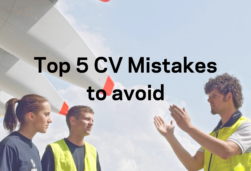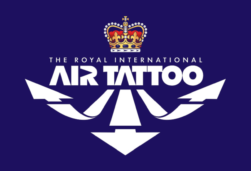The Institute for Apprenticeships and Technical Education is looking for independent peer reviewers to review the content and assessment materials for apprenticeships and technical qualifications. Peer reviewers have experience and understanding of UK employment and education structures. We are particularly looking for expertise in aerospace, engineering & software systems to assist with work on apprenticeships and HTQs (levels 4&5).
Contracted reviewers share their sector knowledge and experience and make sure qualifications meet the needs of employers and learners. They also receive a fee.
Contact IFA.PeerReview@education.gov.uk for details.
Peer reviewers’ comments about why they joined the register and what they perceive as the benefits:
“I am passionate about the amazing and vibrant industry we serve, coupled with a firm belief in ‘paying it forward’. I like being involved in ensuring that apprentices and learners are getting the very best training, that is current, professional and appropriate for the career they are working in.”
“Working as a peer reviewer keeps me fresh, keeps me thinking about how learners and staff are applying the tools and techniques in new and innovative ways. It helps me support the links between employers and courses using not only research but experience and the very latest assessment practice. In my field, where subjectivity and practitioner expertise are critical components, I enjoy knowing I have been a part of refining and supporting the new ways of interpreting and supporting the development of the next generation.”
Criteria to become a peer reviewer
You should have occupational or academic expertise, largely in the UK, perhaps as a line manager, trainer or technical expert, with enthusiasm for developing people and qualifications. It may be helpful if you have encountered UK training or qualification specifications before, but this is not essential. Peer reviewers must not comment on any qualification or apprenticeship they have been involved in developing. They also must not be current members of employer groups, developing apprenticeships.
The role of the peer reviewer
Peer reviewers use their experience and expertise to provide high quality comments on qualification and apprenticeship content (detailed below). They focus on key quality criteria set by the Institute. A key focus is whether the learner would reach the level of occupational competence appropriate to the qualification and whether the proposed assessment would be valid and reliable. These comments inform the recommendations Institute officials make to the Institute’s Board as part of the approvals process. The peer reviewer’s comments are anonymised prior to distribution and the Institute protects the identity of its reviewers.
The workload for a peer reviewer who has a contract with the Institute is highly flexible and can range from one or two submissions up to several a year. Each review taking typically up to four hours (for which our contracted reviewers receive a fee). A review takes the form of answers to questions about the submission and seeks your views based on your experience. You are asked to give examples to support your comments wherever possible.
What peer reviewers review:
Higher technical qualifications (HTQs)
In its July 2020 consultation response “Reforming Higher Technical Education” the Department for Education announced a new role for the Institute in ensuring higher level technical qualifications (HTQs, level 4 and 5) are high quality and meet employer needs.
Our delivery of this function will see the introduction of a new national approval scheme that recognises and clearly signals which level 4-5 qualifications provide the knowledge, skills and behaviours employers want. We began with a range of digital HTQs (levels 4 and 5) and are continuing with construction and health & science qualifications later this year.
T Levels
In 2019 the Institute took on responsibility for developing and approving T Level qualifications which provide the knowledge and experience needed to open the door into skilled employment, further study or an apprenticeship. These are new two-year courses of study which will follow GCSEs and are the equivalent to three A Levels (Level 3).
Both the outline content and the technical qualifications developed by an awarding organisation (AO) are approved by the Institute, and reviewed by peer reviewers, with our route panels of employers having a central role in making sure that the qualifications will meet the needs of businesses and learners.
Apprenticeships
A core role of the Institute is to be the guardian of quality for apprenticeship standards and assessment plans (Levels 2-7). An apprenticeship standard describes an occupation and the knowledge, skills and behaviours that need to be developed to demonstrate full competence in that occupation and meets set criteria. Employers lead the development and the Institute manages the approval of apprenticeships, which includes peer review. Apprenticeships are evaluated through an end point assessment (EPA) which is also peer reviewed and is externally quality assured.
Route reviews
A statutory responsibility of the Institute is to regularly review the 15 occupational routes, and the individual standards within them, to make sure apprenticeship and technical education provision is high quality and that employer demand is being met. We are currently conducting reviews in several routes and further route reviews will follow.
September 2021
Peer Review Team
Institute of Apprenticeships and Technical Education
IFA.PeerReview@education.gov.uk



